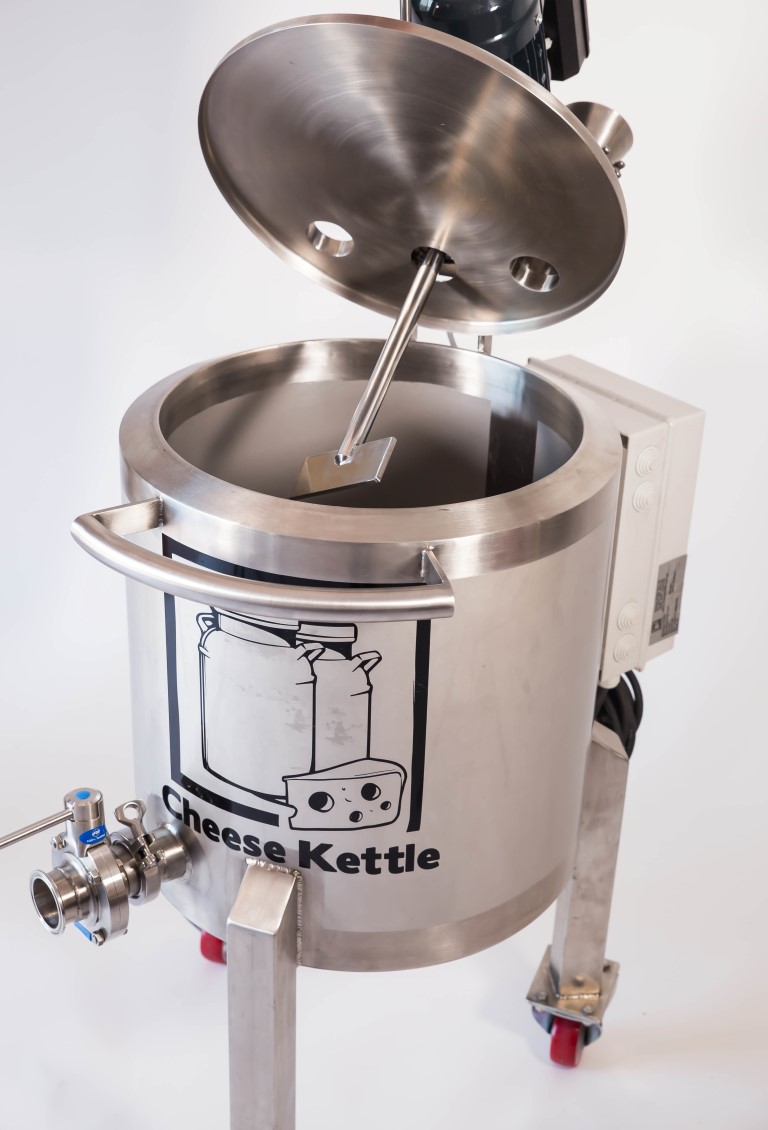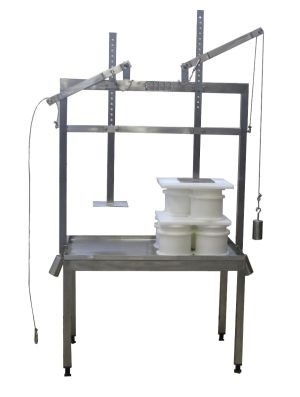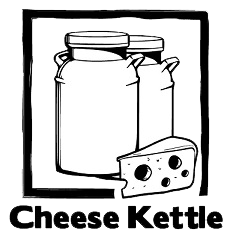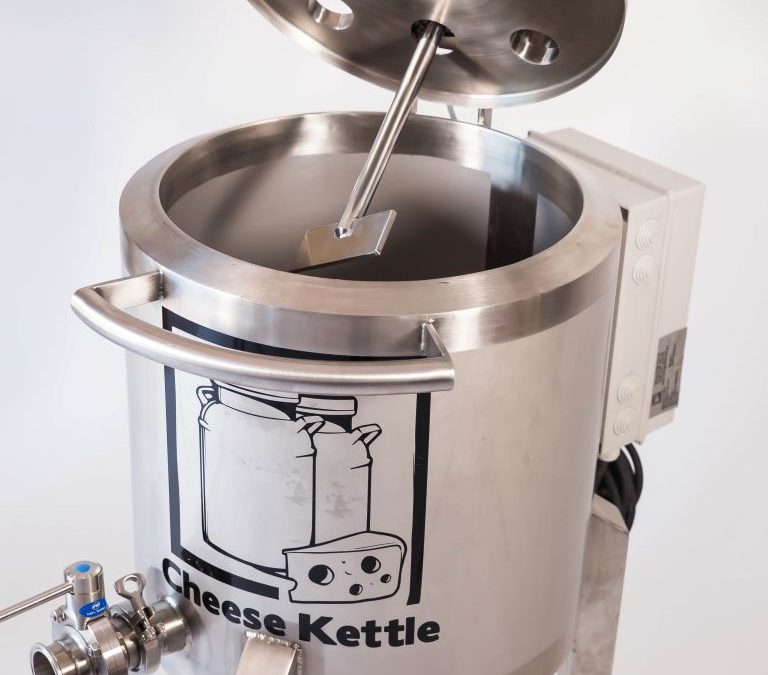Small cheese factory start-up equipment!
First things first, before you will get into the exciting stage of equipment orders, you have to ask yourself following questions:
- What products will you make? Will you make soft cheese, hard cheese, yoghurt or perhaps a combination of all? Focusing on two
- Sell forecast for in first 3, 6 and 12 months – this is crucial! You have to predict what will be your initial turnover to keep the Profit&Lost in good shape and your accountant off your back! Always be prepared for a worst-case scenario. My rule of thumbs is to take off 30-40% of forecasted sells for the first year. Sometimes not meeting initial business plan targets not having to be related directly to your business performance. They may be events you will be out of control with: unpredicted weather or ‘overnight’ price drop of your best selling product by a large retail network are best examples.
- From where Sourcing raw milk will give you an advantage of better milk quality control and usually slightly better price versus getting in bulk pasteurised milk. Unfortunately, raw milk comes with requirements for transporting the raw product to your doors either yourself or contracting out. If you will decide to get in raw milk you will have to pasteurise onsite following very strict government guidelines.
- Space and media Floor space is important to create best product flow possible. Think twice where to put doors or drainage as it is very expensive to change the layout later. Three phase power will give you a wider range of options compare with single phase. Are you on town or tank water? If you using tank water extra filtration and bacteriological control must be implemented to get consistent products.
A good business plan is backed by a feasibility stud, which will help you jump over the hoods of guessing. Such studies will cover most common questions of where your products may be sold, in what quantity and for what price. What is your client base and what your clients expect? Think of hiring a consultant to help you get your head around. Where to find one I hear you asking? DIAA – Australian Dairy Listening is the best place to start looking.
Here is a bare essential list of equipment to start a micro/small cheese factory addressing the most common problems, which new cheesemakers are faced with:
- Limited budget and big
- Limited production space, often of a size of a single garage (it’s still durable)
- Followed by hard to meet
- – It will be a central peace of your new factory. Nice and shiny Pasteuriser Machine, which you will spend a larger chunk of

Small cheese factory must-haves equipment your day working with. Here, you will pasteurise your raw milk (if you choose to do so) or make cheese from a supplied pasteurised milk. A good sized kettle will be in the range of 50ltr to 500ltr. Based on my experience, usually in an early stage of business, you will make more often smaller batches of different products. It’s caused by either testing your market with a variety of product or simply mastering your procedures to get the best shelf life of your products. Once the business grows, you will narrow down your best sellers upgrading to a larger kettle thereby making setup much easier.
- Work table/drainage table – get yourself the largest table, which will comfortably fit in your ‘shop’. You will be using it every day and night (for pressing or drainage of cheese)! Must be on wheels and preferably have two . Bottom shelving is handy to store any equipment for close reach (very importing when you working alone) and for extra storage for off pick time.
- Simple gravity/pneumatic cheese press. If you are planning to make semi-hard or hard cheeses, you will need a cheese press. Too much or too little or uneven pressure are the most common problems causing cheese makers headaches for long matured cheeses.

Mechanical Cheese press - Butter churners, cream separators, brine tanks, blue cheese piercing machines, cheese moulds, drainage racks
Nowadays, we are spoilt with options when it comes to smaller add-up equipment. If you are planning to make soft cheeses like Camembert or wash rinds look for multi molds. Multi mold will save you time on cleaning and labour costs in a long run If you would like to make the best Stilton style cheese, think of using piercing machine to save time and effort.
- Maturation room (aka cheese cave) – it’s the most overlooked item on the list. Properly designed and sized cooling equipment will save you a lot (and I mean it). In lost sells, product quality problems and grey hear! Talk to an expert to get professional advice on how your needs may be met.
TIP: Local refrigeration business (unless experiences in building cheese caves) – it’s not always the best for an expert!
Here’s where the rubber meets the road. Like with anything else in life, before you buy, do your research! Read any related book, talk with other cheese makers and call suppliers asking them as many questions as you can about your dream equipment. What are the estimated delivery times or if things will go par shape, who will cover the warranty work (if your supplier is based overseas and not having office domestically, it’s not as obvious as you think!) and who will cover the service afterwards? How quick supplier reply to your queries (if you are waiting couple days on reply, what makes you think you will have the best service after the sell)?
There were many before you succeeding in starting their own dairy business and most (if not all) started small. I am sure with research, support from a family and friends and a pinch of luck, you will succeed as well. Good luck!
If you would like to read full article published in DIAA Australian Dairy Food you can click here:

